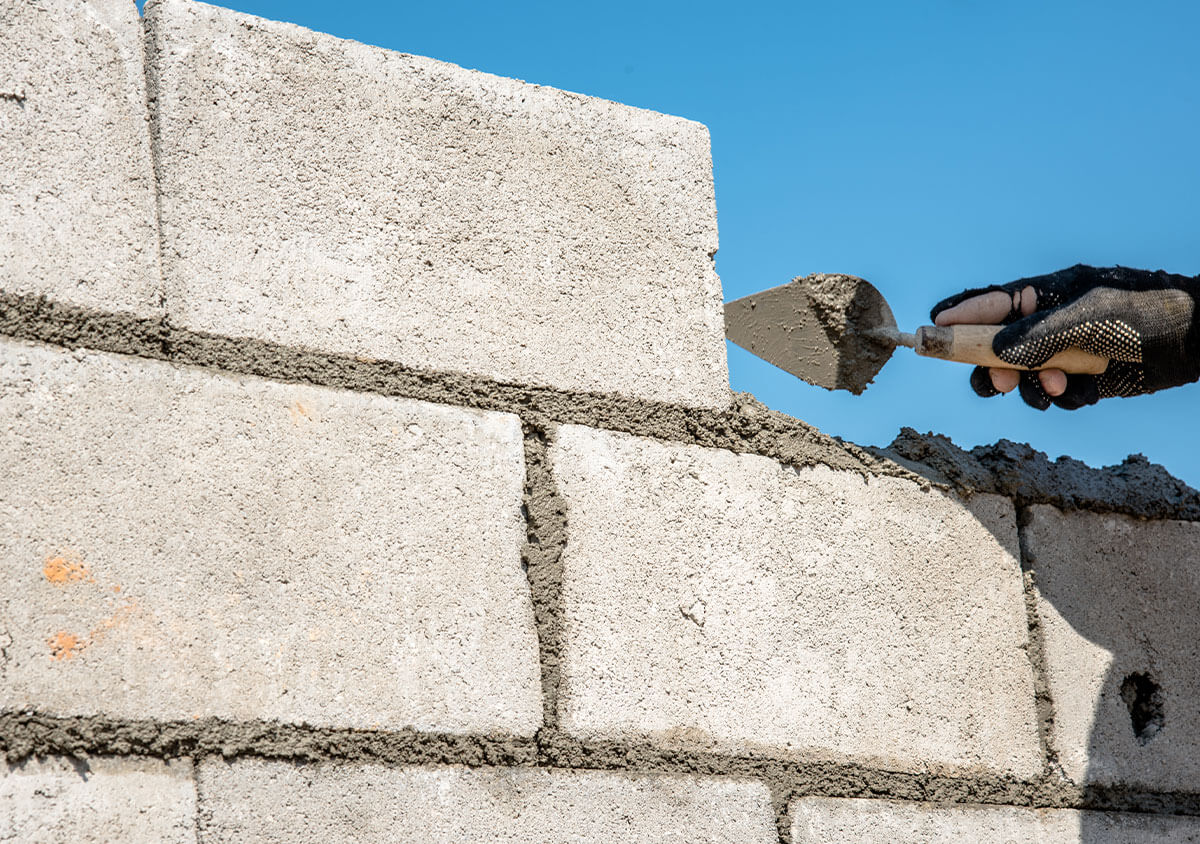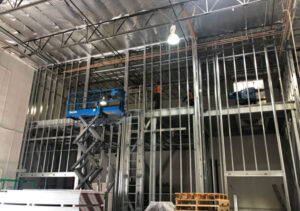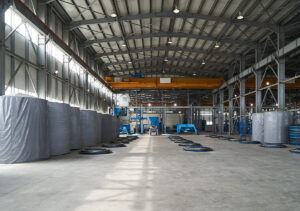Suitable building materials are crucial when constructing a solid, functional commercial warehouse. Concrete masonry units (CMU blocks), also known as concrete blocks, have long been famous for commercial buildings due to their durability and affordability. But are they the perfect fit for your warehouse? Let’s delve into the advantages and disadvantages of using CMU block walls in warehouse construction, helping you make informed decisions with your general contractor and commercial construction company.
The Mighty Pros of CMU Block Walls:
- Durability: CMU blocks are celebrated for their robustness and durability, with the ability to endure severe weather conditions, impacts, and substantial loads. This makes them a perfect choice for meeting the rigorous requirements of a warehouse setting.
- Fire Resistance: CMU walls offer excellent fire resistance, a vital safety feature for warehouses storing flammable materials or equipment.
- Soundproofing: The dense nature of CMU blocks provides superior sound insulation, minimizing noise pollution from machinery and operations and creating a quieter and more conducive work environment.
- Thermal Insulation: CMU walls offer good thermal insulation, helping regulate warehouse temperature and potentially reducing energy costs for heating and cooling.
- Low Maintenance: CMU blocks require minimal maintenance, saving time and resources. Their resistant nature protects against rot, pests, and moisture damage.
- Affordability: Compared to other materials like steel or wood, CMU blocks offer a cost-effective option, making them an attractive choice for budget-conscious projects.
- Sustainability: CMU blocks are often made from recycled materials, promoting sustainability and potentially contributing to LEED certification for your warehouse.
The Potential Cons to Consider:
- Slower Construction: Compared to prefabricated materials, construction with CMU blocks can be slower, potentially extending your project timeline.
- Weight and Labor: CMU blocks are heavy and require skilled labor for installation, increasing workforce needs and potentially project costs.
- Limited Design Flexibility: While CMU walls offer some design options, they are less versatile than certain materials like steel, potentially restricting your architectural vision.
- Thermal Mass Concerns: While offering insulation, the thermal mass of CMU walls can make them slow to respond to temperature changes, requiring careful HVAC system planning.
- Moisture Management: Improperly sealed or constructed CMU walls can be susceptible to moisture penetration, leading to potential mold or structural issues.
Making the Informed Choice:
Ultimately, whether CMU block walls are right for your warehouse construction depends on your specific needs and priorities. Consulting with an experienced commercial construction company and your general contractor is crucial. They can assess your warehouse requirements, budget, and timeline, providing valuable insights and guidance in choosing the optimal building materials.
Remember:
- CMU blocks offer excellent durability, fire resistance, and soundproofing at a competitive price, making them a compelling option for many warehouses.
- However, slower construction times, limited design flexibility, and potential moisture concerns require careful consideration.
- Partnering with a reputable commercial construction company and general contractor ensures well-informed decisions and a successful warehouse construction project.
Your warehouse isn’t just a building; it’s the backbone of your operations. Choose wisely, build with strength, and let your commercial space stand as a testament to your success.
Contact Us at (800) 469-1922 for a complimentary consultation.




